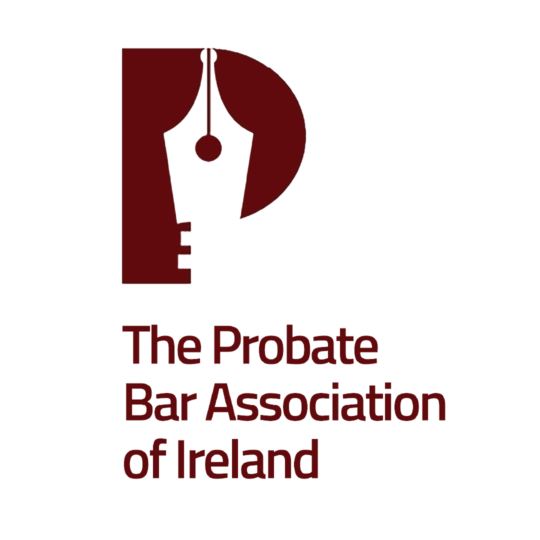
In this exploration of Ireland’s Succession Act 1965, the article delves into the nuances of Section 117 and its impact on a child’s right to provision from a deceased parent’s estate. Written by John Donnelly SC, this blog examines the exclusion of intestacies and the implications of such a distinction.
Succession Act 1965
Prior to 1965, a testator had broad freedom to distribute their estate. Section 117 of the Succession Act 1965 marked a departure, granting a child the right to seek court provision if the testator failed to do so during their lifetime or through a will. However, one of the striking features of the Act was the decision to limit the application of section 117 only to situations where the deceased parent had made a will. Section 109(1) of the Act provides that the relevant Part of the Act containing section 117 shall apply where a person dies “wholly or partly testate”. Therefore, it is clear that section 117 does not extend to a situation in which the deceased parent has died intestate, i.e. without having made a valid will.
What is a testacy?
A person is deemed to have ‘died testate’, where they have made a valid will that disposes of any part of their estate, however insignificant. Once a will is valid, the deceased will be deemed to have died testate, even where the provisions of the will are of no practical effect. For example, in the case of RG v PSG (1980) ILRM 225, Carroll J held that the deceased in that case had died testate, notwithstanding that his will had made his wife his sole executrix, universal legatee and devisee, but she had predeceased him. This rendered his will wholly inoperative at the date of his death.

Why are intestacies excluded?
During the passage through the Oireachtas of the Status of Children Act 1987, an amendment was proposed to bring intestacies within the scope of section 117 of the Succession Act. The amendment was opposed by the government and it was not included in the final Act. The Minister for Justice at the time gave two reasons; firstly, he stated that the rules of intestate distribution guarantee a fair and equitable share to each child where no will has been made. Secondly, he claimed that to extend the scope of the section would lead to an increase in unnecessary litigation.
Is equality enough?
The first of these reasons does not appear to be consistent with the jurisprudence to date on section 117. The Supreme Court has made it clear that it is not enough for the testator to treat all of his children equally. In EB v SS [1998] 4 IR 527 Keane J stated that:
It is obvious that it is not necessarily an answer to an application under section 117 that the testator has simply treated all his or her children equally. The maxim “equality is equity” can have no application where the testator has, by dividing his estate in that manner, disregarded the special needs (arising for example from physical or mental disability) of one of his children . . .”
Similarly, in the case of Re ABC deceased; XC and others v RT and others [2003] IR 250, Kearns J pointed out that a testator may have a moral duty to make additional provision for a child who, for example, was induced to work on a farm and has shaped his upbringing and life accordingly, or who has a long illness, physical or mental disability, or who has an exceptional talent that ought to be nurtured. In such a case it is arguable that the testator will not have discharged his moral duty by simply leaving his estate to all of his children in equal shares.
Furthermore, the notion that an extension of the scope of section 117 of the Succession Act to intestacies would result in an “increase in unnecessary litigation” does not appear to be well founded. While in New Zealand, Australia, England and Wales, family provision legislation was initially confined to testacies, in each jurisdiction the legislation has long since been expanded to take in intestacies as well. In the case of Re Coventry [1980] Ch. 461, the Court of Appeal in England considered an argument of moral obligations are less relevant in the case of intestacy, however the Court came to the conclusion that “the problem must be exactly the same whether one is dealing with a will or an intestacy or a combination of both”.
The current position
The 2010 enactment of Section 67A (3) of the Succession Act somewhat erodes the testacy-intestacy divide, allowing children of deceased parents in civil partnerships to seek court provision. There is a limitation on the amount of provision that can be given to the child but the section is available whether the parent in question died testate or intestate. It is difficult to see why such a remedy should be available to a child of a parent who was in a civil partnership at the date of his or her death, but not to a child whose parent was either married or not married. In so far as the key focus in section 117 is on the concept of “proper provision”, it is difficult to justify a situation where children of a testate are entitled to seek proper provision from the estate of their parent, while children of an intestate are not. It would seem that a reconsideration of this marked disparity by the legislature is long overdue.
The views expressed above are the author’s own and do not reflect the views of The Bar of Ireland.
Discover the Probate Bar Association

The Probate Bar Association (PBA) was formed to provide a forum for members to contribute through a collective voice to the development of the law in this area.
Through membership of the association, members stay up to date and in touch with changes and developments in this highly specialised area.